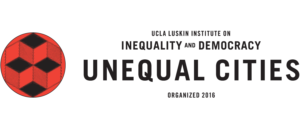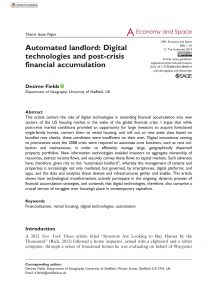Environment and Planning A: Economy and Space
By #UnequalCities Network Steering Committee member Desiree Fields
Summary: This article centers the role of digital technologies in extending financial accumulation into new sectors of the US housing market in the wake of the global financial crisis. I argue that while post-crisis market conditions provided an opportunity for large investors to acquire foreclosed single-family homes, convert them to rental housing, and roll out an new asset class based on bundled rent checks, these conditions were insufficient on their own. Digital innovations coming to prominence since the 2008 crisis were required to automate core functions, such as rent collection and maintenance, in order to efficiently manage large, geographically dispersed property portfolios. New information technologies enabled investors to aggregate ownership of resources, extract income flows, and securely convey these flows to capital markets. Such advances have, therefore, given rise to the “automated landlord”, whereby the management of tenants and properties is increasingly not only mediated, but governed, by smartphones, digital platforms, and apps, and the data and analytics these devices and infrastructures gather and enable. This article shows how technological transformations actively participate in the ongoing, dynamic process of financial accumulation strategies, and contends that digital technologies, therefore, also comprise a crucial terrain of struggles over housing’s place in contemporary capitalism.
Read >> Automated Landlords: Digital Technologies and Post-Crisis Financial Accumulation


